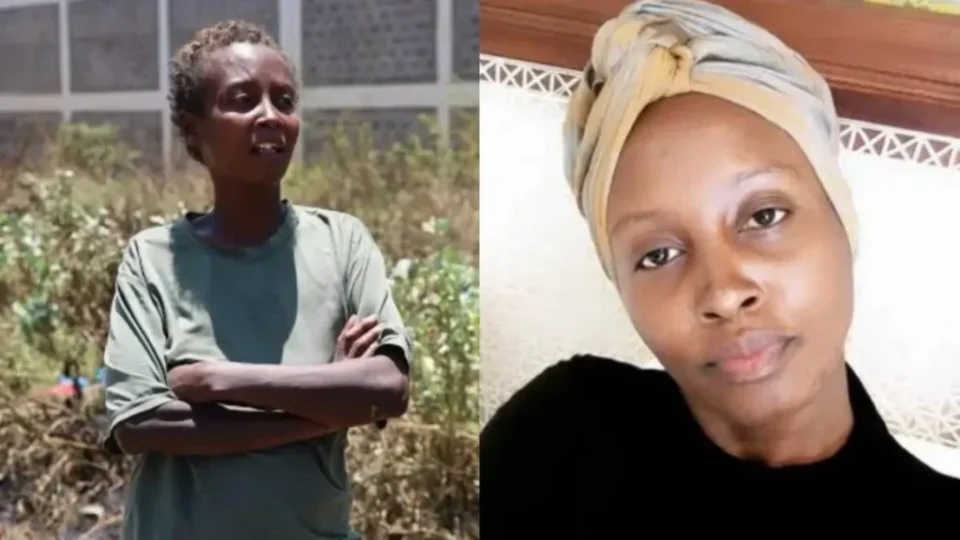Nasibo Kabale, once a celebrated journalist at Nation Media Group (NMG) in Kenya, is now homeless, her life derailed by severe depression triggered by her coverage of the COVID-19 pandemic. Her story, which has captivated the nation through viral social media videos, has sparked widespread concern and ignited a national conversation about mental health stigma and the lack of support for journalists facing intense emotional strain. Kabale’s journey from a top-earning media personality to living on the streets of Nairobi underscores the devastating impact of untreated mental health issues and the urgent need for systemic change in Kenya.
Kabale’s journalism career began with promise. Armed with a diploma in Broadcast Journalism from the Kenya Institute of Mass Communication, she started as an intern at Mediamax before securing roles at Standard Media Group and, eventually, NMG, one of Kenya’s most prestigious media houses. At NMG, she rose to become one of the country’s highest-paid journalists, specializing in health reporting. Her work during the COVID-19 pandemic in 2020 earned her a Presidential Award, recognizing her critical role in delivering vital information to the public during a time of global crisis. Her reports on the virus’s impact, from overwhelmed hospitals to public health measures, made her a trusted voice and a household name.
However, the emotional toll of covering the pandemic proved overwhelming. The constant exposure to rising death tolls, grieving families, and strained healthcare systems led to Kabale’s diagnosis of depression in 2020. She sought treatment at Chiromo Hospital, where she was prescribed anti-depressants, but her condition continued to worsen. The pressure of meeting tight deadlines and maintaining objectivity while grappling with personal trauma became unbearable. After a brief attempt to return to work, Kabale resigned from NMG, hoping to focus on her recovery. Without the structure of her job and facing financial instability, her mental health deteriorated further, leading to a rapid descent into hardship.
Today, Kabale lives on the streets of Nairobi, a stark contrast to her former life as a celebrated journalist. Videos circulating on platforms like TikTok, shared by users such as @streetsvibing, show her in dire circumstances, often barefoot and clutching a knife for protection. She is separated from her young daughter, who now lives with her father, deepening Kabale’s sense of isolation. The images have shocked many Kenyans who remember her as a beacon of hope during the pandemic, prompting an outpouring of empathy and calls for action to support her recovery.
Kabale’s plight has drawn attention to the pervasive stigma surrounding mental health in Kenya, where mental illness is often misunderstood as a personal failing rather than a medical condition. This stigma discourages many from seeking help, leaving individuals like Kabale to suffer in silence. The lack of accessible mental health services and public awareness exacerbates these challenges, creating a vicious cycle for those in crisis. Her story has become a rallying point for advocates pushing for greater education, resources, and policy changes to address mental health issues in the country.
The journalism industry, particularly in high-pressure fields like health reporting, places significant demands on mental well-being. Journalists are expected to cover traumatic events, meet tight deadlines, and remain resilient, often without adequate support. In Kenya, the media sector also contends with financial instability and job insecurity, which can push professionals toward burnout and mental health crises. Kabale’s experience highlights the need for media houses to implement support programs, such as counseling services and stress management training, to protect their workforce. Her case also reflects broader systemic issues, as many Kenyans struggling with mental illness face similar barriers to care and social acceptance.
Public response to Kabale’s situation has been heartfelt. Comedian and philanthropist Eric Omondi has pledged to help her regain stability, while other Kenyans have advocated for resources to assist her recovery and reintegration into society. Despite her circumstances, Kabale has expressed a desire to return to work in a new capacity, such as podcasting or vlogging, where she believes she can leverage her skills with minimal resources. Supporters see this resilience as a sign of hope, suggesting that with the right assistance—such as providing her with equipment like a phone and microphone—she could rebuild her life.
Kabale’s story is a sobering reminder of the fragility of mental health and the devastating consequences of inadequate support systems. Her journey from a celebrated journalist to homelessness serves as a call to action for Kenya to confront mental health stigma and invest in comprehensive care. By amplifying her story and supporting efforts to help her recover, the nation has an opportunity to build a more compassionate society that prioritizes mental well-being for all, especially those in high-stress professions like journalism. As Kabale continues to navigate her challenges, her resilience and the public’s response offer hope for a future where mental health is treated with the urgency and care it deserves.
